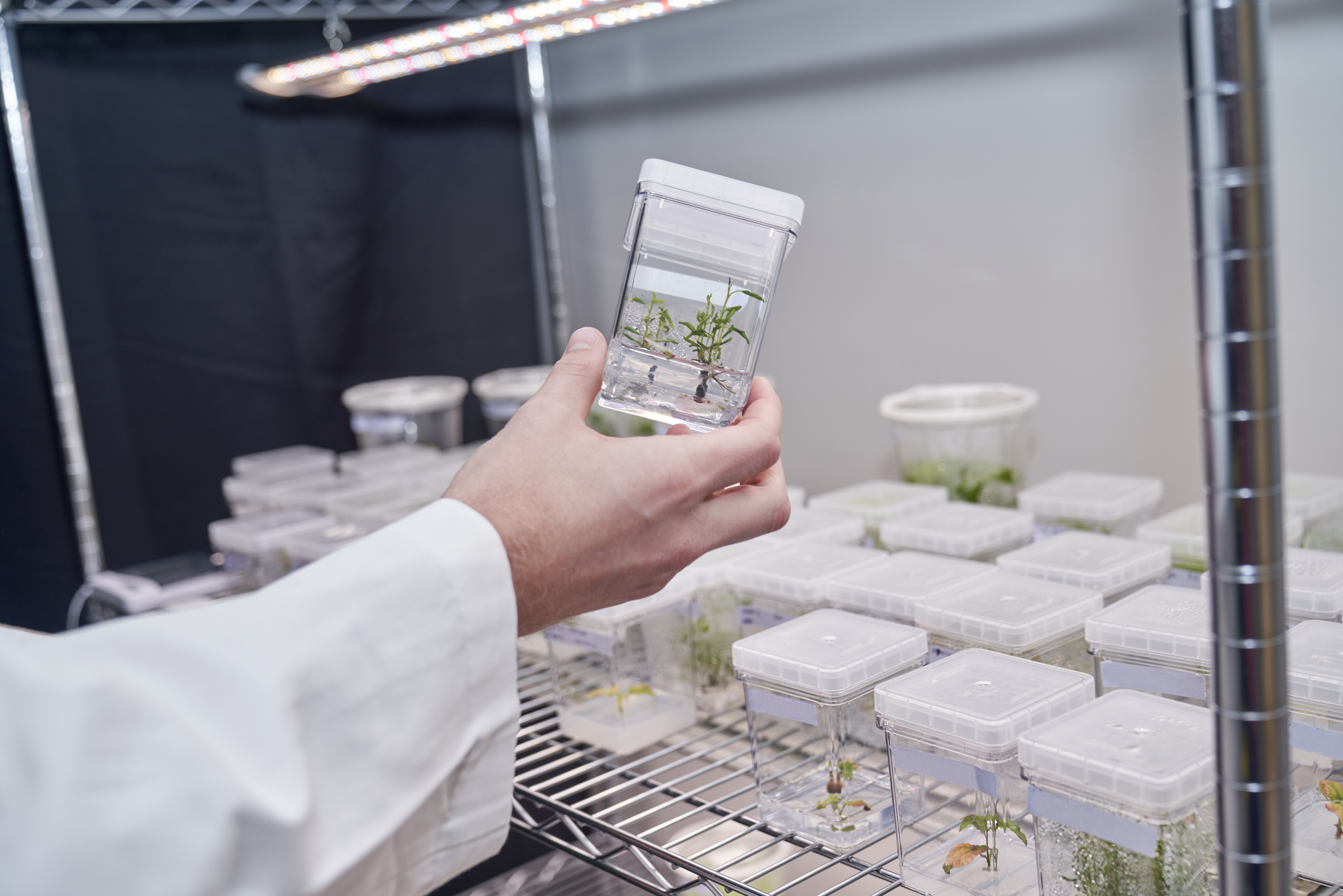Jesse Klein
More posts from Jesse Klein
The recent IPCC report and the UN’s report on climate change make it clear: It’s crunch time to start working on something to combat the amount of CO2 in our atmosphere. There are hundreds of startups working on that “something.”
Some are working on direct air capture technologies, like Climeworks, which raised $110 million in April. These engineered solutions pull carbon from the atmosphere using expensive and complicated machinery and inject it back into the ground for long-term storage.
But there is a more efficient way of capturing carbon that has been around for much longer: photosynthesis. Nature-based solutions tend to be focused around this approach; think tree planting or soil restoration. These have been championed by nonprofits like The Nature Conservancy and American Forests.
In the world of climate mitigation, nature-based solutions are cheap and bountiful, but are seen as short-term carbon removals because much of the carbon is at risk of being released back into the atmosphere if a fire burns through a forest, or a human cuts down the trees. Engineered solutions are much more durable and quantifiable, but are expensive and in short supply.
Living Carbon, a San Francisco-based startup that exited stealth mode in March, is working at the intersection of nature and engineered solutions to climate change. The company is genetically engineering trees so they can store more carbon.
“Plants have the unique power of fixing carbon from the atmosphere: photosynthesis,” said chief science officer at Living Carbon, Yumin Tao.
The startup wants to enhance that power by creating trees with higher photosynthesis capability.
The idea is to “utilize that natural process… with the added storage and the added durability of an engineered solution,” CEO Maddie Hall said of her company.
Breeding and engineering plants to be bigger and stronger isn’t new. It’s something the food and agriculture world has been doing for a long time. Even the specific scientific innovation that Living Carbon is using — enzymes to bypass the inefficient biological pathway called photorespiration, which causes plants to release some CO2 back into the atmosphere, wasting some of the energy produced by photosynthesis — has been a field of research for decades. But instead of using those tools to grow more food, more easily and cheaply, Living Carbon is turning that biological innovation toward carbon sequestration.

“I was fascinated with this idea of, could you orient a lot of the plant biotechnology work that is specifically used to focus on food supply, could you orient that around solving a new problem: carbon removal?” Hall said.
Living Carbon’s real innovation was taking the genetically engineered process of suppressing photorespiration that was developed for tobacco plants and putting it in trees like the hybrid poplar and Loblolly pine trees. According to Tao, Living Carbon has spliced genes for enzymes from pumpkins and algae into the trees so the carbon dioxide is broken down inside the chloroplast and results in a more efficient process of converting CO2 into sugar with less released back into the atmosphere. This process is based on a naturally occurring one found in certain more photosynthetically efficient plants called C4 plants, which include corn and sorghum.
“More carbon fixed means there is faster growth and bigger plants,” Tao said. And because, according to Tao, about 50% of the biomass of a plant is carbon, bigger plants mean less carbon in the atmosphere.
In a research paper that is yet to be peer-reviewed released by Living Carbon, an experiment in an indoor controlled growing environment found that over five months, trees genetically engineered with Living Carbon’s technology had a 53% increase in above-ground weight than the control plants.
The next step is for Living Carbon to field test its genetically engineered trees. It has a four-year partnership with Oregon State University to continue researching its trees, and this month the company started planting with private landowners in Pennsylvania, Georgia and California.
Living Carbon is working in the new burgeoning carbon economy. It won’t be making money by selling the genetically engineered trees to landowners, but will instead provide the trees free and retain the rights to the carbon credits generated from the planting projects. It can then sell those credits to corporate buyers like Microsoft and Salesforce that have net-zero ambitions for their companies. The landowners also get a revenue share of the sales.
Organizations like Verra and The Gold Standard are used to verify, evaluate and award carbon credits to projects. Because of the genetic enhancements that cause Living Carbon’s trees to be bigger, and thus have more carbon, they will get more credits than a project using regular trees if this stays consistent.
“Landowners right now can plant trees that have elite genetics and grow faster than traditional trees,” Hall said. “It’s enhancing growth for carbon removal purposes.”
Living Carbon is also working to reduce CO2 emissions from the other side by finding genes that slow down the decomposition process. Carbon stored in trees can never be truly permanent because the trees are living organisms that will eventually die and will always be at risk of unpredictable wildfires, but slowing decomposition is a way to make the life cycle longer, reducing the CO2 released during this process and the amount of highly flammable kindling in the forest.

“When you globally reduce the rate of decomposition, you also globally increase the carbon pool in soil and keep that carbon out of the atmosphere for longer,” said Patrick Mellor, co-founder of Living Carbon.
It’s also exploring if it can engineer trees to grow on land previously unable to support them, like old mining areas, by creating trees that have a higher tolerance for nickel or other heavy metals. According to Mellor, Living Carbon has demonstrated that some of the trees in its research have a higher nickel tolerance and lower decomposition rate, but those studies are still in the indoor growth testing phase.
Trees are one of our greatest and most popular tools for combating the climate crisis. Using human innovation to make them even more powerful has attracted a $15 million Series A for the three-year-old company, led by Felicis Ventures, with participation from Lowercarbon Capital, Goat Capital, Prelude Ventures and others.
“The ability for us to utilize biology’s highly energy-efficient nature, and do so in a way that’s permanently able to sequester carbon, that’s the Holy Grail,” Hall said.































Comment